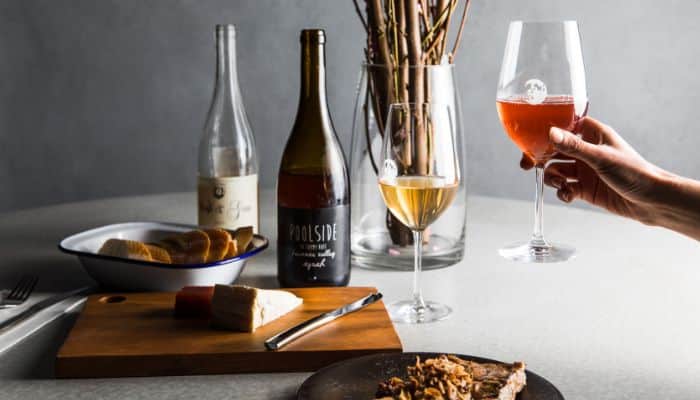Raising The Bar
Small bars are serving exceptional menus while trimming costs. Too good to be true? Food writer Richard Cornish finds out.
From spaces no bigger than a household laundry, bar kitchen crews are sending out outstanding dishes, big and small. And at the same time, they’re trimming food and staff costs by keeping it simple, serving extremely delicious dishes that require minimal skill to plate up.
Young Melbourne restaurateurs Doug Milledge and Toby Koffman met in a New York café where space was a premium. “The dish pig worked in a cupboard,” says Toby. “Every spare square centimeter was storage,” adds business partner Doug. “There was a limited menu, and we only made what we knew we could sell that day.”
When the two returned to Australia, they worked in wine bars. Using their combined experience, they came up with a new format based on a limited menu of easy to prep dishes, interchangeable kitchen and FOH roles, and kitchen labour invested in a few intense hours each morning.
Called Alberts, the popular and busy venue near Melbourne’s Armadale station received its wine bar licence in early 2022. It serves snacks, meals and fine wines from noon until late, Tuesday to Sunday.

Charley Snadden-Wilson, Chef, The Moon
A short rib ragu is cooked on Tuesdays, portioned, frozen and reheated to order on par-cooked pasta. The last menu saw cooked meatballs packed in single-serve sous vide bags, then heated to order and served on smart but rustic white and blue enamelware.
“We don’t have a dishy, so the enamel stacks up but won’t ever break,” says Toby. “It’s such a simple menu… a talented home cook, as opposed to a certified chef, can work the kitchen.” Doug adds: “They can make up dishes, and if they work to the format and costings to make a dish to go with our wines, then it goes on the menu. That’s how our whipped ricotta started.”
On warm summer nights, Alberts offered conserved Spanish sardines and anchovies, which were splayed on plates and served with accompaniments such as umami-rich nori butter and freshly blitzed salsa verde. Bars and restaurants are finding inspiration from Spain’s simple but refined bar menus, according to Lachlan Barber, who runs Spanish food and wine importer Alimentaria.
“We here in Australia are catching up to the Spanish who have been leaders in bar cuisine for decades,” he says. “They have worked around space and labour issues and have used conserved products, like anchovies, creating simple yet sophisticated offers for a picky audience. “We have bars like The Moon in Melbourne and Bar La Salut in Sydney who are doing impressive menus.”

The Moon, Collingwood, Melbourne
At The Moon, chef Charlie Snadden-Wilson can turn out 70 covers each shift from a kitchen measuring just 3×6 metres. There’s no combi. No gas burners. Just a five-litre deep fryer, a sandwich press and one induction plate.
“We keep a small, constantly changing menu but never put it out there (online),” says Charlie, a talented Kiwi who has cooked at Etta, Ramblr, Embla and Town Mouse. “We don’t want people coming in with set expectations. Party numbers can drop like flies due to COVID so we keep a small inventory and turn it over. One protein dish and the rest veg-based.”
Charlie’s point of difference is the larder stacked with house-made fermented preserves and sauces. “You get imperfect mushrooms? I make a fermented mushroom sauce, and this will be the umami base for the Comte and sauerkraut toastie. No waste. Better margins. Big flavour. Happy customers,” he says.
“Let’s make no bones about it. We’re here to move drinks. The food plays second fiddle. It has to be great, but wine is number one.”

Alberts Wine Bar, Armadale
La Salut chef Scott McComas-Williams based his menu on a summer in with dishes like fried prawn toast slathered in Tasmanian sea urchin or a bowl of Spanish potato crisps with mussels dusted with paprika.
“The Spanish bar model is so simple,” says Scott. “You make half a dozen great tortillas at the beginning of the day and sell them throughout the day. Once they’ve gone, they’ve gone.”
Scott admits that some dishes, such as fresh seafood, have higher food costs, but are insanely easy to prep and cook. “You just throw them on la plancha (hotplate), so you have virtually no labour input,” he says. “Overall, the number of hours of labour is lower. We are trying to make life easier because none of us are getting any younger.”
Richard Cornish is an award-winning author and journalist who has been writing about Australian food and drink for almost three decades, amassing a cult following for his weekly column in The Age and Sydney Morning Herald. Richard has also co-authored best-selling books with MoVida’s Frank Camorra and bakery doyen Phillippa Grogan.
-
Subscribe to stay up to date
- Register
